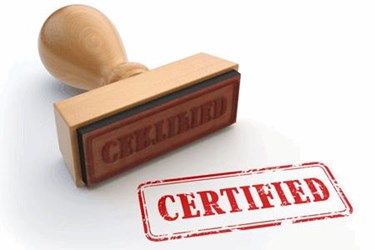What Will Clinical Research Certification Mean To Pharma?

By Ed Miseta, Chief Editor, Clinical Leader

The National Board of Medical Examiners (NBME) is a not-for-profit organization that has been around for over 100 years. Its primary mission is assessing the qualifications of healthcare professionals. Although most widely associated with the U.S. Medical Licensing Exam (USMLE), NBME also has extensive experience impacting different healthcare professions, including veterinarians, medical assistants, and physical therapists. More recently, the group has been looking into developing an assessment that would be helpful to clinical researchers.
“Over the last two years we have placed a concentrated effort on talking to individuals involved in clinical research, including those from pharma, academia, regulatory agencies, sites, and CROs,” says Kathleen Short, program officer at NBME. “Our goal was to determine their pain points and determine if there was a need for some type of standardization, especially in the area of training. We determined there was a need for training, a method to measure the effectiveness of it, and to eliminate redundancy in training that existed. We felt confident this was an area where we could provide value to the industry.”
 After concluding its research, NBME developed two certification programs with the help of clinical research experts in the field. One is for clinical investigators and scientists, while the other is for monitors, associates, and coordinators. The content of the assessments is foundational knowledge in clinical research, which includes study design, ethics, data management, and other topics professionals would need to be aware of, regardless of their role in the research process. The two certifications vary when it comes to specifics of the positions.
After concluding its research, NBME developed two certification programs with the help of clinical research experts in the field. One is for clinical investigators and scientists, while the other is for monitors, associates, and coordinators. The content of the assessments is foundational knowledge in clinical research, which includes study design, ethics, data management, and other topics professionals would need to be aware of, regardless of their role in the research process. The two certifications vary when it comes to specifics of the positions.
In order to sit for the exam and gain certification, Short notes examinees must provide evidence of their eligibility, including education and experience in clinical research. The multiple choice exam takes 4 hours and 15 minutes to complete. After the exam, examinees can review information about their performance, including areas of strength and weakness. If an organization makes the exam available to their employees, that organization can receive aggregated information on staff performance so as to identify knowledge areas in need of improvement and improve future training for researchers.
“For CROs and for sites, having this certification in place for researchers could demonstrate staff proficiency and knowledge to current and future partners,” says Short. “We think this will be a great advantage for them, and is one way sponsors can know that a potential partner is qualified to handle their outsourced trials. Since the certification is specific to an individual, it is also portable. Once someone is certified, that certification will follow them wherever they go.”
For sponsor companies, the certification is also a way to ensure their internal trials are being handled by qualified personnel as well. There will also be a registry of certified professionals that sponsors, sites, and CROs can turn to when determining whether a job candidate has completed the certification.”
The NBME notes they are a separate, disinterested party when it comes to clinical research, which makes its assessment both fair and objective. Stone notes the primary interest of NBME is protecting the public, not promoting and individuals or organizations. The assessment is not geared towards any particular training program, which means there is no bias in the exam. The scenarios presented in it are intended to be as realistic as possible.
“When we did our initial research, we found there were other programs available to clinical researchers,” adds Short. “Some were webinar-based which would earn participants a certificate upon completion. On the high-end you might have a master’s degree in public health. Our goal was to create a program that would be effective at determining a researcher’s skill set.”
There are certainly other clinical certifications available. SOCRA (Society of Clinical Research Associates) and ACRP (Association of Clinical Research Professionals) do have their own certification programs, but they are more specific to defined titles within the industry. The Society for Clinical Data Management has one as well, but none of them compare to the certification being proposed by NBME.
Finally, Short notes NBME became aware of the need for certification after it was brought to the attention of the organization by physicians working in clinical research who wanted to ensure proper certification. Upon researching those concerns, NBME realized the need for a pathway for individuals to get into research, which involved enhancing those skills they need to be successful.
“One issue we became aware of is investigators getting trained, participating in one trial, and then not contributing to a second one,” she says. “Keeping up with the training, as well as proof of training, can be a significant burden. We hope this certification program will eliminate some of those challenges and make the certification process easier for professional who want to continue in this field.”
